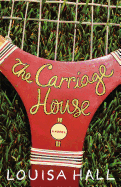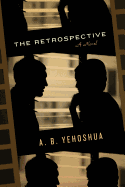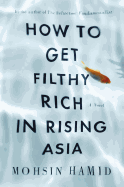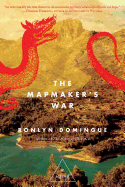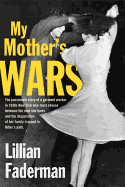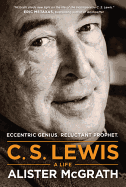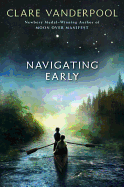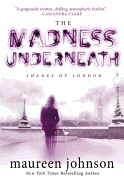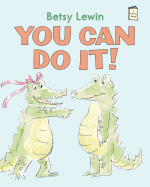 The classical world of faery legends was "something I'd always loved from old stories," Gillian Philip wrote in an e-mail from her home in the Scottish Highlands. "They're so savage and romantic, about as far from 'flower fairies' as you can imagine." That passion fuels Firebrand, the first of Philip's novels to be published in the U.S. under her own name, and the first novel in her Rebel Angel series. (See our review below.) It's narrated by Seth McGregor, a young faery who follows his older brother into 16th-century Scotland, a deadly time and place for anyone with abilities that might be attributed to witchcraft.
The classical world of faery legends was "something I'd always loved from old stories," Gillian Philip wrote in an e-mail from her home in the Scottish Highlands. "They're so savage and romantic, about as far from 'flower fairies' as you can imagine." That passion fuels Firebrand, the first of Philip's novels to be published in the U.S. under her own name, and the first novel in her Rebel Angel series. (See our review below.) It's narrated by Seth McGregor, a young faery who follows his older brother into 16th-century Scotland, a deadly time and place for anyone with abilities that might be attributed to witchcraft.
In the U.K., Firebrand was published in 2010 as a young adult title, in part because Philip was already an established YA author; Tor Books, starting from a clean slate, is presenting her work to American audiences as mainstream adult fantasy. (Two sequels are already out in Britain, which Tor will roll out over the next year.) "Although Seth is a young adult for much of the book, I didn't think of Firebrand as particularly YA," Philip explained, noting that the story has some very adult situations. "To be honest, I think it suits both markets; I don't tone down my subject matter, my style or my themes for my YA readers anyway. The politics and the personal relationships seem to appeal to both readerships... and I know Seth has quite a few adult women among his admirers!"
On her website, Philip confesses that "I take dictation from the characters in my head, who spend their lives telling me what's going to happen next." That's exactly what happened with Seth, whom Philip describes as a "completely unintentional" character. "I was writing Bloodstone [the second book in the series] and needed a secondary villain to help the queen move her wicked plans along," she said, "and before I knew it the little devil had elbowed his way in and taken over the entire book. He just kept giving me seductive glances over his shoulder, and saying 'I've got an interesting past, you know,' until I had to give in and investigate his back story."
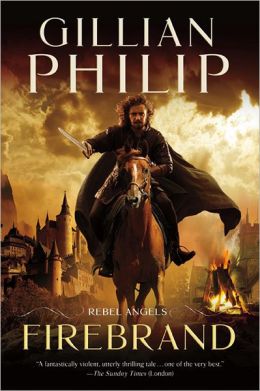 Philip's previous fantasy novels have taken place in modern settings, as do the later Rebel Angels novels; she credits Seth's "intervention" with leading her to the late 16th century--knowing that he was 400 years old in our time dictated the era of his youth. The intense religious conflicts of the Scottish Reformation and the zealous hunts for witches were the perfect dramatic backdrop to Seth's story. "I'm not the world's keenest when it comes to research, but this period was fascinating--and not a little chilling," she admitted. Among her discoveries: a price list for a witchfinder's various services--"like quotes from a plumber," she marveled.
Philip's previous fantasy novels have taken place in modern settings, as do the later Rebel Angels novels; she credits Seth's "intervention" with leading her to the late 16th century--knowing that he was 400 years old in our time dictated the era of his youth. The intense religious conflicts of the Scottish Reformation and the zealous hunts for witches were the perfect dramatic backdrop to Seth's story. "I'm not the world's keenest when it comes to research, but this period was fascinating--and not a little chilling," she admitted. Among her discoveries: a price list for a witchfinder's various services--"like quotes from a plumber," she marveled.
(The historical diversion was only temporary, though: "I did at one point think I might bring the other books back to the 17th and perhaps 18th centuries," Philip said, "but it just didn't feel right. I'd always seen [these characters] existing in our current world. It was kind of fun to place these ancient warriors in the 21st century, and provide them with cars and snowboards and iPods.")
Philip, who has openly "ghosted" novels under several pseudonyms, hopes to continue writing under her own name after the fourth Rebel Angels book ("provisionally called Icefall") appears next year. She has ideas for a new fantasy project, as well as a contemporary crime novel, but doesn't rule out returning to the world of Firebrand. "You know how these things are," she said. "I catch sight of a scene or a photograph and it sparks something in my head, and I realize there are more characters and more stories to be told. A young woman leaped out at me from a magazine a few months ago, and I instantly thought, 'Oh! There's a descendant of Seth if ever I saw one....' " --Ron Hogan, founder of Beatrice.com
Gillian Philip: Taking Dictation from Her Characters
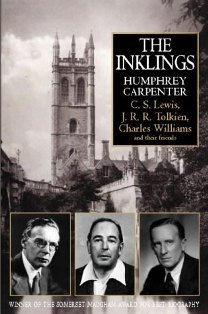 Lewis's most famous friend was J.R.R. Tolkien, who joined forces with Lewis to found the group known as "The Inklings." Humphrey Carpenter brilliantly captures Tolkien's spirit in his meticulously researched study, J.R.R. Tolkien: A Biography (Houghton Mifflin Harcourt, $15.95). A lifelong Oxford resident himself, Carpenter interviewed Tolkien's family and delved into the author's papers to provide a wealth of detail about the man who created Middle-earth. Carpenter also wrote The Inklings, a (sadly out of print) group biography of the informal literary society and their frequent evenings of drink and debate. The Inklings' meetings at the Eagle and Child pub are now the stuff of Oxford legend.
Lewis's most famous friend was J.R.R. Tolkien, who joined forces with Lewis to found the group known as "The Inklings." Humphrey Carpenter brilliantly captures Tolkien's spirit in his meticulously researched study, J.R.R. Tolkien: A Biography (Houghton Mifflin Harcourt, $15.95). A lifelong Oxford resident himself, Carpenter interviewed Tolkien's family and delved into the author's papers to provide a wealth of detail about the man who created Middle-earth. Carpenter also wrote The Inklings, a (sadly out of print) group biography of the informal literary society and their frequent evenings of drink and debate. The Inklings' meetings at the Eagle and Child pub are now the stuff of Oxford legend.



 The classical world of faery legends was "something I'd always loved from old stories,"
The classical world of faery legends was "something I'd always loved from old stories,"  Philip's previous fantasy novels have taken place in modern settings, as do the later Rebel Angels novels; she credits Seth's "intervention" with leading her to the late 16th century--knowing that he was 400 years old in our time dictated the era of his youth. The intense religious conflicts of the Scottish Reformation and the zealous hunts for witches were the perfect dramatic backdrop to Seth's story. "I'm not the world's keenest when it comes to research, but this period was fascinating--and not a little chilling," she admitted. Among her discoveries: a price list for a witchfinder's various services--"like quotes from a plumber," she marveled.
Philip's previous fantasy novels have taken place in modern settings, as do the later Rebel Angels novels; she credits Seth's "intervention" with leading her to the late 16th century--knowing that he was 400 years old in our time dictated the era of his youth. The intense religious conflicts of the Scottish Reformation and the zealous hunts for witches were the perfect dramatic backdrop to Seth's story. "I'm not the world's keenest when it comes to research, but this period was fascinating--and not a little chilling," she admitted. Among her discoveries: a price list for a witchfinder's various services--"like quotes from a plumber," she marveled.
